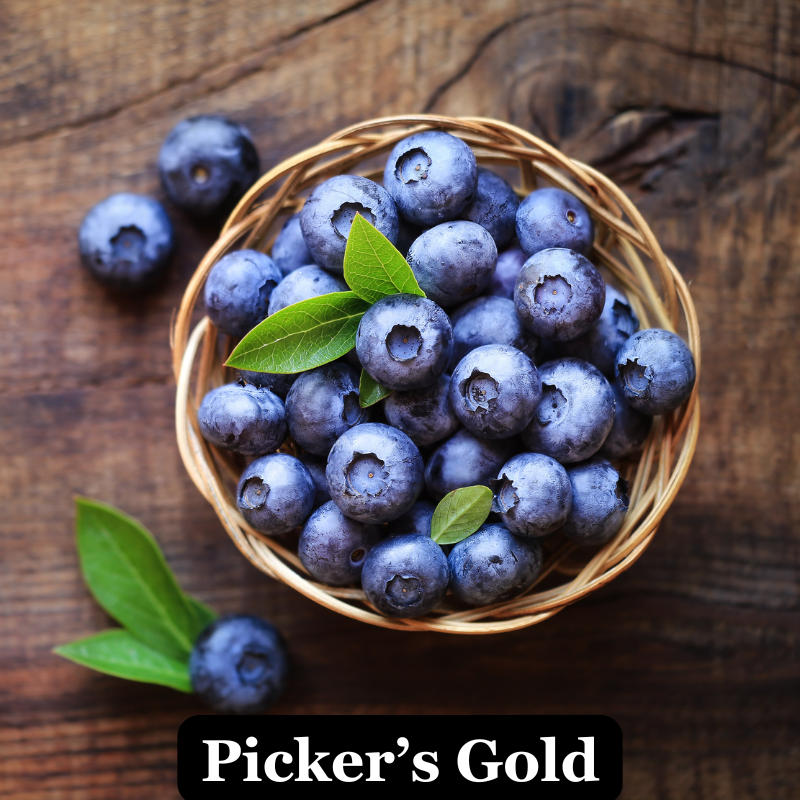The Tiny Blue Secret to Outsmarting Brain Fog—Backed by Science

Are we doomed to lose our minds as we age? I see a good amount of older patients because of the progression and pathology of disease with age. I’ve made a few interesting observations over the years.
Mental aptitude, cognitive function and memory reveal themselves immediately after a simple exchange of information. You catch on pretty quickly to the sharpest nails in the box from a cognitive standpoint vs the dull ones, to put it bluntly.
For some, their minds are like fine wine, with the quality only improving with age. I’ve seen 90-year-olds completely independent and still running complex daily function of a businesses.
Cognitive decline.
Varying definitive terms for the same thing can be confusing. Brain aging. Memory loss. Mental slow down. There’s definitely a spectrum, and we should be on the look for ourselves or family with passing time. The erosion of our mental faculties starts off subtle. Normal aging with manifests as forgetful events or simply blanking on a word. Then, mild cognitive impairment sets in. Problem solving or difficulty planning. Doesn’t interfere with activities of daily living, but getting close. The boogey man of cognitive decline, dementia, if the final nail in the coffin.
Why is this important?
The 6th leading cause of death within the U.S comes from the complications related to dementia. Of these dementia cases, over 80% lose their ability to perform basic activities of daily living like bathing dressing or preparing meals.
Cognitive decline worsens spatial awareness. It starts a domino effect which leads to falls and bone fractures and hospitalization. Dementia patients stay up to 6 times longer than other older with 36-50% experiencing a decline in ADLs like bathing or dressing. This prolonged exposure often leads to outcomes like delirium or new nursing home placements.
Awareness is the first foundational rock we need cemented in place. Prevention should be the next building block. The focus today will be nutrition. Specifically blueberries. This nutrient dense berry possesses unique biological properties and, in extensive research, proves beneficial for protecting the brain and preventing cognitive decline.
Oxidative stress
The brain, under constant attack, needs to shield itself from oxidative stress. Imaging tiny little bombs floating around in the brain colliding with the cells and supportive tissues. We want to shield the brain from this destructive process. Blue berries do this because they contain antioxidants called anthocyanins. Of course, plenty of foods contain antioxidants, but the unique feature of blue berries lies in the ability of the anthocyanins to cross the blood-brain barrier. Direct neutralization of the oxidation and inflammation caused by these primary driving forces behind cognitive decline.
A study published in the European Journal of Nutrition involved 37 older adults (aged 60-75) who consumed either 24 grams of freeze-dried blueberry powder (equivalent to 1 cup of fresh blueberries) or a placebo daily for 90 days. The trial found that the blueberry group showed significant improvements in executive function, such as fewer errors in task-switching tests, compared to the placebo group.
Another six-month study in Nutritional Neuroscience, involving 86 participants with mild cognitive impairment (per MoCA). Researchers randomly assigned participants to consume either wild blueberry powder or a placebo daily. Compared to a placebo group, participants who consumed blueberries showed faster information processing on the Cambridge Neuropsychological Test Automated Battery, suggesting potential benefits in early cognitive decline.
The upside
Blueberries are inexpensive. Unlike fresh blueberries, frozen ones are available regardless of the season. Based on research, 1-2 cups of daily blue berries should be enough to reap the protective brain benefits. If able to find, wild blue berries contain 2x the antioxidants as farmed ones, so ½ cup to cup should be enough.
Protect the mind
Many lifestyle factors impact health, but mental health is arguably the most important. It's essential that we learn to guard it. The mind is a universe and can make things happen that the body cannot. By fueling and nourishing your mind, you inevitably find that your body will also become healthy and strong. Considering the remarkable impact a tiny berry can have on long-term brain health, its nutritional value easily justifying a taste test, why wouldn't you give it a try?